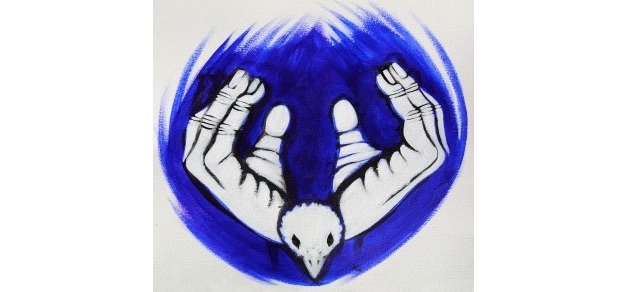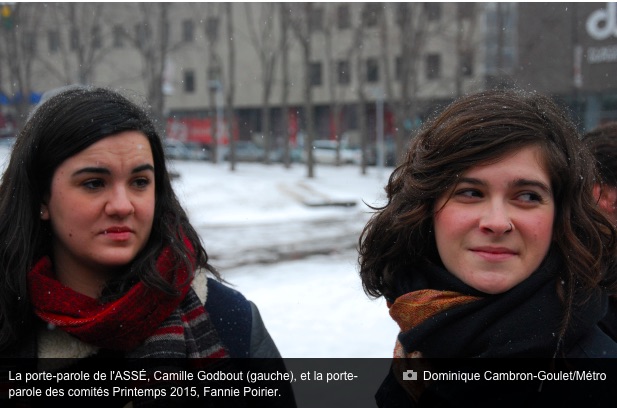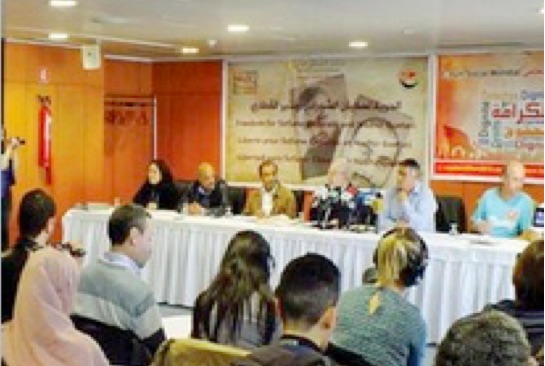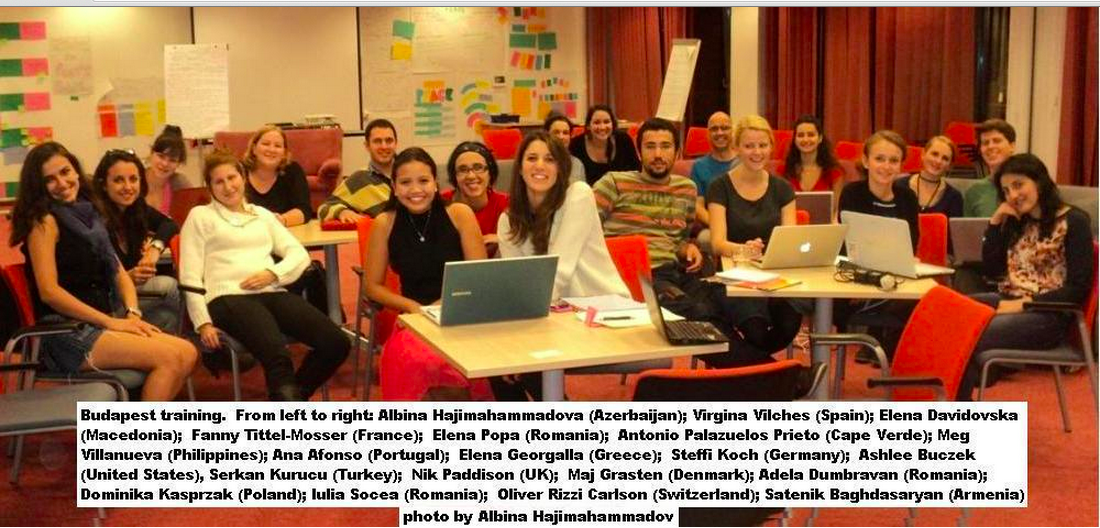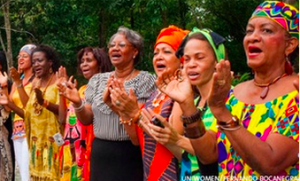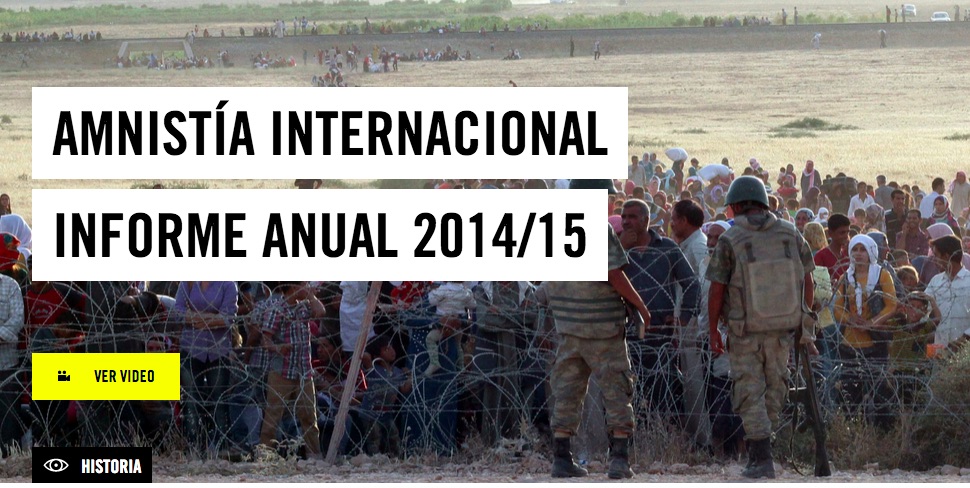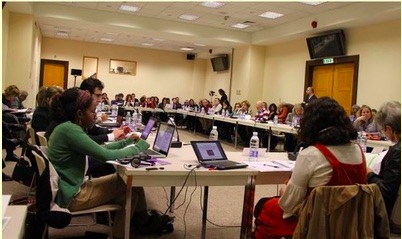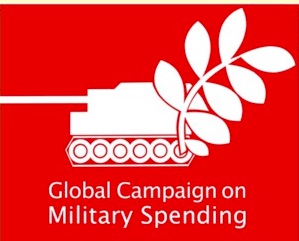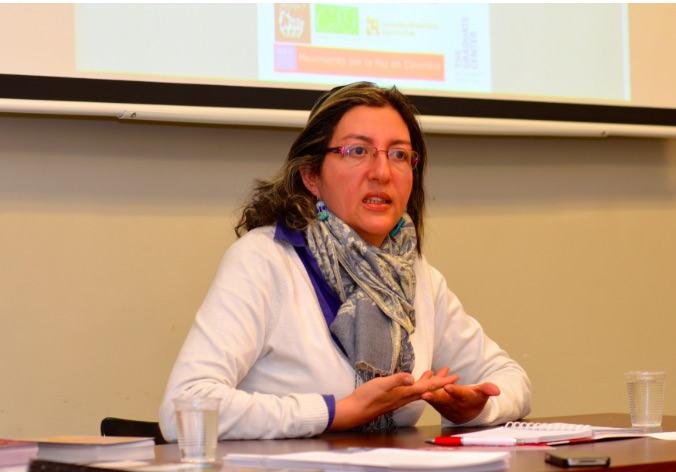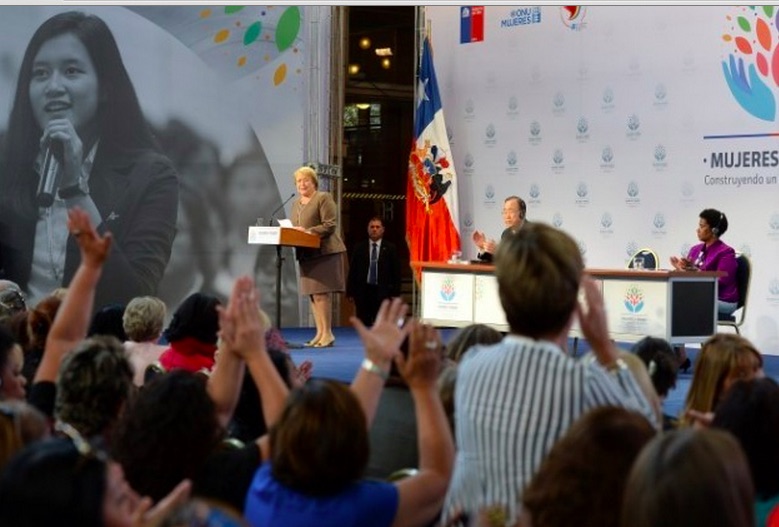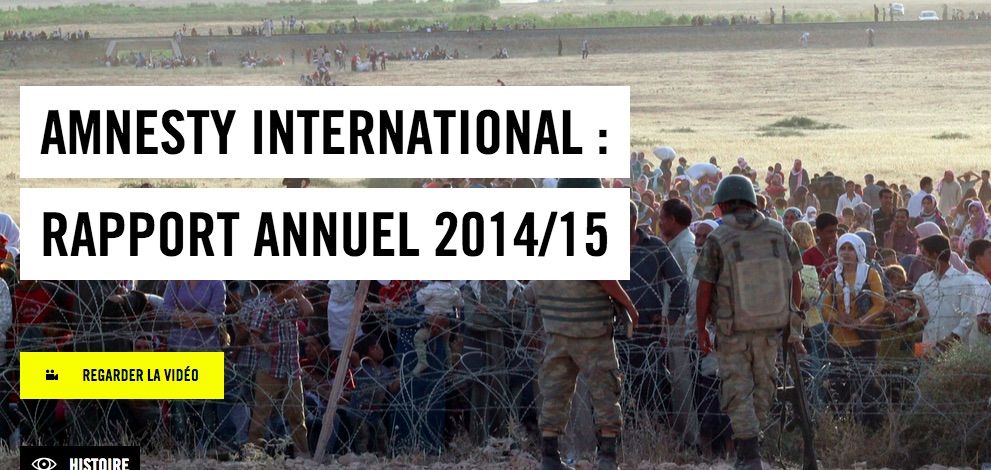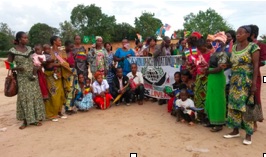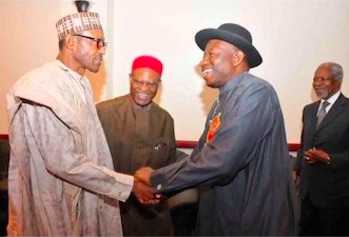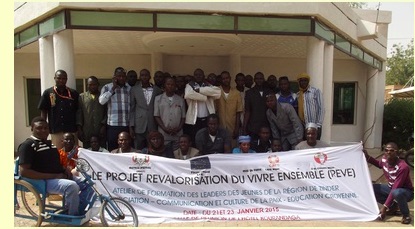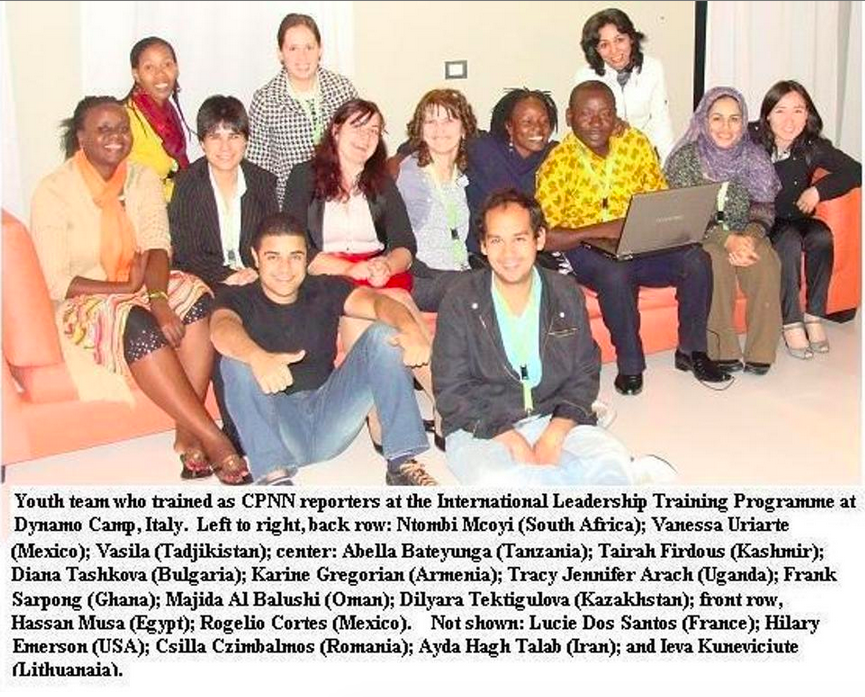(continuation de l’article)
L’Histoire est en train de s’inverser doucement mais surement. Ainsi, les ravages causés par les politiques d’austérité en Europe couplé aux réussites fabuleuses des politiques sociales au Venezuela, en Bolivie ou en Equateur ainsi qu’au poids important de pays émergents comme le Brésil ont permis à L’Amérique Latine de s’attirer la sympathie et l’admiration de ceux qui en Europe luttent pour un système économique alternatif et un monde multipolaire où chaque pays jouerait de manière égal sa partition dans le concert des nations libres. Alors bien sur, il ne s’agit pas de copier ou de calquer l’expérience latino-américaine en Europe, mais de s’en inspirer et de prendre exemple sur des pays qui ont vécu la même situation que celle que vit le vieux continent aujourd’hui et qui peuvent désormais se taguer d’avoir des taux de croissance important, une baisse significative de leur dette, une diminution spectaculaire de la pauvreté et, au Venezuela et en Bolivie, la disparition pur et simple de l’analphabétisme.
Lors d’une conférence donné en français en novembre 2013 à la Sorbonne, le président équatorien Rafael Correa avait très justement affirmé que « l’Europe endettée reproduit nos erreurs », sous entendu les erreurs commises par les gouvernements néolibéraux sud-américains comme Carlos Menem en Argentine ou Carlos Andrès Pérez au Venezuela. Les orientations révolutionnaires et progressistes prises par certains pays d’Amérique du sud depuis environ quinze ans ont été un sacré pied de nez à ceux qui proclamaient la « fin de l’histoire ». Les maux dont souffre l’Europe sont les mêmes dont a souffert l’Amérique Latine il y a 20 ans. Et pourtant, grâce à des présidents courageux et déterminés à mettre fin à cet état de fait, les choses ont beaucoup changé. Reconquête des souverainetés populaires, nouvelles orientations économiques, nouvelle vision de la politique et de la démocratie… L’Amérique Latine, malgré un passé symbolisé par l’exploitation et le pillage, décrit comme un continent violent emprunt aux dictatures, montré avec l’Afrique comme le continent où règne la misère, cette Amérique Latine là a depuis bien changé et l’Europe, et plus généralement l’Occident, devraient s’en inspirer au lieu de vouloir la déstabiliser par le biais d’un vieil outil qui reste toujours à la mode : l’impérialisme.
L’Amérique Latine, une menace pour l’idéologie dominante
Néanmoins, le moins que l’on puisse dire, c’est que les transformations qui ont eu lieu en Amérique latine n’ont pas fait que des émules outre Atlantique. En effet, si la gauche radicale européenne a salué les transformations latino-américaines, les principaux partis des gouvernements européens, ainsi que les médias, se sont eux lancés dans une guerre ininterrompue contre les présidents insoumis du sous-continent.
Depuis que le Venezuela, suivie d’autres pays de la région, ont commencé à tenir tête aux puissances impérialistes occidentales et aux multinationales, ces pays sont devenues les cibles récurrentes des médias dominants. Le Monde, Libération, El Pais, La Repubblica etc., tous ces puissants médias aux mains de richissimes hommes d’affaires ont tout fait pour donner une image désastreuses des nouvelles expériences qui jalonnent l’Amérique latine. La déontologie journalistique a été abandonnée pour laisser la place aux invectives, aux mensonges et aux caricatures ignobles. Les médias, redoutables professionnels de la propagande, ont ainsi tout essayer pour tenter de donner une image néfaste des présidents Chavez, Morales, Correa… Souvent, ils ont volontairement occultés les réussites en matière de politique économique et sociale des pays concernés, préférant traiter les présidents en question de « dictateurs » ou de « populistes ». Les puissances impérialistes ont de leur coté vivement soutenues l’opposition fasciste, d’abord au président Chavez puis à son successeur, Nicolas Maduro.
La même chose se passe dans les autres pays, avec le soutien financier nord-américain à l’oligarchie bolivienne ou équatorienne par exemple. On sait maintenant le rôle fondamental qu’ont joué les gouvernements occidentaux, notamment Washington, pour détruire la vague socialiste qui déferlait dans le continent de Bolivar. Mais pourquoi tant d’acharnement à vouloir s’en prendre à des pays démocratiques et souverains ? Pourquoi tant de médiamensonges ? Cette méfiance des nations occidentales envers ce qui se passe en Amérique latine s’explique par la peur que suscite une contagion régionale puis internationale des révolutions latino-américaines. Les maitres de l’économie mondiale tremblent face à une possible « théorie des dominos ». On en est bien sûr assez loin mais la violence avec laquelle les médias et les puissances occidentales traitent certaines nations latino-américaines en dit long sur le danger que celles-ci représentent pour l’ordre économique et géopolitique mondial. Après la disparition de l’URSS, les Etats-Unis étaient devenues les maitres du monde et se permettaient tout, dans la plus grande impunité. L’économie néolibérale était imposée un peu de partout et la « fin de l’histoire » était déclarée. Mais le réveil des peuples d’Amérique Latine est venu bousculer un système qui se croyait tout puissant et à l’abri des révoltes. Les tentatives d’expérimentation de système économique alternatif visant à dépasser le capitalisme et l’émergence de puissances émergentes ont donné à l’Amérique Latine un nouveau statut et un nouvel aura dans le monde. Désormais, le continent a son mot à dire et ne se soumet plus, du moins certains pays, à l’impérialisme et au néocolonialisme états-unien et européen. Le continent lutte jour après jour pour arracher son indépendance économique, sa « véritable et définitive seconde indépendance » tel que le proclamait le comandante Chavez.
Le chemin est encore très long et le combat contre les ennemis intérieurs et extérieurs ne se fera pas sans dommages. Les contradictions inhérentes au processus de changement qui touche le continent constitueront de grands défis pour le future.
Quels défis pour l’avenir de l’Amérique latine ?
Les difficultés, les contradictions et les défis restent à l’ordre du jour en Amérique latine et dans les pays concernés par ce processus de changement social historique. Dans ce sens, si l’on veut contribuer à faire évoluer le processus, si l’on veut voire la révolution des peuples latino-américains s’approfondir et se radicaliser pour dépasser pas seulement le système néolibérale mais le système capitaliste, il est nécessaire assumer ces difficultés et de s’en approprier.
De nos jours, dans une situation tellement désespérante en Europe, nous aurions tendance à idéaliser le processus d’intégration latino-américain. Et pourtant, les difficultés et les contradictions inhérentes à ce processus existent bel et bien. Elles sont naturelles et propres à tout processus de changement social. Les pays de Notre Amérique ont plus que jamais besoin de notre solidarité et d’un regard d’égal à égal. Une attitude amicale consisterait donc à signaler les risques et les défis existants sans le moindre trace du paternalisme et de l’arrogance si caractéristiques du passé colonial européen. Nous devons faciliter les conditions pour l’approfondissement des politiques pour la transition vers un nouveau paradigme post-capitaliste, vers le socialisme latino-américain du 21ème siècle. La responsabilité historique de la gauche européenne doit être celle d’interpréter quel est le besoin de solidarité concrète à chaque instant, dans un monde dominé par la désinformation, et de contrecarrer la propagande qui se développe au quotidien sous nos yeux. Notre but est simple : manifester au monde entier qu’en Amérique latine une révolution est en marche. Une révolution que oui, certes, présente des anomalies et parfois des incohérences, mais qui reste une révolution qui vise à bouleverser l’ordre économique et politique qui a détruit, au sens strict du terme, ce continent. Une révolution qui représente un espoir et une alternative pour tous les pays du Sud. Une révolution qui est en train de contribuer à un progrès social généralisé. Dans cette période de crise systémique du capitalisme mondiale, les politiques sociales latino-américaines devraient inspirer autres parties du monde en difficulté, notamment l’Europe et à l’Amérique du nord de l’austérité, de la précarité et de la dégradation sociale. Donc oui, s’approprier des défis et des contradictions de ce processus est un devoir fondamental pour nous tous. Cela pour en comprendre soigneusement les caractéristiques et être ainsi capables d’argumenter, de démontrer, à l’appui de bases et connaissances solides, que oui, une alternative est possible, que oui, la lutte contre l’impérialisme et le ravage néolibérale est en marche, pour la construction d’un monde de paix et justice sociale.
Fin de l’article:
Comme on a vu auparavant, la situation et les conditions socio-économiques dans les différents pays touchés par ce processus se sont assurément améliorées. Des importantes réformes politiques ont vu le jour dans la majorité de ces pays, favorisant l’accroissement de la participation des populations (notamment les populations indigènes) jadis exclues de la vie et de l’action politique et, aujourd’hui, finalement propriétaires d’une « conscience politique », leur permettant d’avoir une incidence majeure. La promotion de l’inter-culturalité et la plurinationalité ont aussi été une réalité, comme le témoigne l’instauration de L’Etat Plurinational de Bolivie et sa nouvelle Constitution politique.
Un nouveau modèle de développement est-il possible ?
La voie vers une nouvelle conception/paradigme de développement a tout de même commencé, avec l’introduction (au niveau normatif et des discours) de l’élément naturel (la Pachamama, la Madre Tierra, en espagnol) comme caractère de premier plan dans les stratégies de développement. C’est un bouleversement à ne pas sous-estimer. Malgré ce qu’écrivait Marx à propos du lien entre capitalisme et destruction de la nature, les expériences socialistes passées n’ont pas mis l’accent, pour des claires raisons historiques et stratégiques, sur la nécessité de placer la nature au centre des politiques de développement. C’est-à-dire que la conception dominante restait fondamentalement anthropocentrique au lieu de biocentrique. Les avances plus importantes dans ce sens on peut les observer en Equateur et en Bolivie, où l’introduction des droits de la nature au sein de la constitution représente une nouveauté pionnière. Néanmoins, à cause de l’état de dépendance de l’économie extractive, ces avances et ces discours restent sur la carte. Mais au moins, ils sont inscrits sur la carte. La concrétisation du processus de changement (avec notamment l’émancipation du système capitaliste, l’intégration économique au sein du bloc progressiste latino-américain, la création d’institutions supranationales latino-américaines dans les secteurs clés des économies et la mise en ouvre d’une stratégie économique nationale basée sur la diversification économique) aura le devoir de transposer ces discours et ces lois dans des politiques tangibles et effectives.
Or, tout ce qui brille n’est pas de l’or. Les hiérarchies et les structures de domination hérités des périodes précédentes (la période coloniale et celle néocoloniale) sont encore en place. Comme le dit François Houtart, sociologue belge, le processus latino-américain est aujourd’hui un processus post-néolibéral mais pas encore post-capitaliste. Pour lui, le caractère post-néolibéral est très affirmé, pour le fait de vouloir concrétiser la reconstruction de l’Etat, récupérer ses rôles et se libérer de l’ingérence hégémonique des chiens de garde du capital financier international : la Banque Mondiale et le Fond Monétaire Internationale. Néanmoins, à l’heure actuelle, on ne peut pas parler de tout cela comme d’une transformation post-capitaliste : les pays latinos (sauf Cuba) restent essentiellement dans une logique organisationnelle de leur économie qui est capitaliste, l’exploitation de la force travail est toujours une réalité même si, à différence des pays néolibérales, des politiques redistributives ont amélioré les conditions de vie des travailleurs. Au Venezuela par contre, la transition est allée plus loin, l’approfondissement de la révolution bolivarienne a contribué à créer des nouvelles formes d’organisation au sein des entreprises et des communes socialistes autogouvernés.
En outre, dans tous ces pays (aussi dans ce cas sauf Cuba et en moindre mesure au Venezuela) les multinationales continuent à dicter la loi pour ce qui concerne notamment l’extraction des ressources naturelles, hydrocarbures et produits miniers en primis. En Equateur, Chevron est toujours très influent dans les politiques extractives du pétrole amazonien. En Bolivie, malgré des importantes vagues de nationalisation dans l’industrie minière et des hydrocarbures, initiées par le gouvernement Morales en 2006, les multinationales sont encore sur place, puissantes, agressives comme d’habitude, en train de polluer les écosystèmes et asservir les populations locales. A l’est du pays, encore sous le contrôle de l’oligarchie blanche du pays, Monsanto dicte la loi dans les immenses plantations de soya. Inutile de discuter du cas du Brésil et de l’Argentine, pays encore plus en arrière dans ces processus de changement structurel.
Origine et nature de ces contradictions
Mais pourquoi, se demande beaucoup de monde, en dépit des discours des acteurs politiques de ces pays, le processus fatigue à prendre son essor ? Nous pensons que cette question est en effet mal formulée. Le processus ne fatigue pas à progresser. Le processus est, par sa même étymologie, quelque chose qui avance par étapes. Cela détermine des contradictions inévitables, des « tensions créatives au sein de la révolution », comme l’affirme le vice-président bolivien Alvaro Garcia Linera. Des tensions, inévitables, qui « d’un côté, menacent la poursuite (de la révolution) ; de l’autre, elles permettent d’imaginer les moyens de passer à l’étape ultérieure ». Comme on l’écrivait dans un vieil article de Investig’Action, « pour dépasser cette contradiction, le premier pas sera la démocratisation et puis l’appropriation par la société du processus juridique d’arbitrage. Il faut pousser une avant-garde garante de l’intérêt commun. Dans un premier temps, l’objet devrait être la réduction des inégalités par une redistribution des richesses. La deuxième étape, constituerait la transformation progressive du peuple en instance collective ».
Ces contradictions seront d’autant plus marquées dans le cas de pays comme ceux latino-américains à l’entrée dans le 21ème siècle, présentant des caractéristiques à prendre en compte. La Bolivie, L’Equateur et le Venezuela, par exemple, ont été probablement les pays les plus touchés par la dévastation néolibérale de l’Amérique latine, arrangée par les gendarmes du néocolonialisme occidental, la Banque Mondiale et le FMI, en accord avec les grandes puissances occidentales. Tout résidu de tissu industriel a été anéanti, les populations indigènes spoliés de leur droits, la pauvreté se trouvait à des niveaux catastrophiques (en 2005 la Bolivie était, après Haïti, le deuxième pays le plus pauvre de tout l’hémisphère occidental)… L’un des héritages les plus douloureux de la période néolibérale, dont on ne fait pas assez souvent mention, est sans doute la totale dépendance des économies de ces pays aux exportations de produits non-finis (notamment pétrole brut, produits miniers, gaz et autres hydrocarbures). Il faut considérer aussi le fait que cette dépendance se manifeste aussi de la côté du savoir technologique et administratif. Ce fait implique que au moment de leur entrée en jeu, les présidents progressistes latino-américains se sont trouvés dans un état de (totale) dépendance vers les marchés internationaux et le « jeu » du commerce international de matières premières. Sortir d’un jour à l’autre de ce « jeu » aurait signifié l’impossibilité, pour ces pays, de financer leurs politiques sociales et de soutenir leurs dépenses en général. Par conséquence, dans le court-terme, le maintien de liens des pays progressistes avec le système capitaliste international est une condition nécessaire pour leur survie.
Le processus d’intégration latino-américain et la route vers le socialisme du 21ème siècle s’inscrivent dans un processus long, complexe, trempé d’entraves et inéluctablement contradictoire. C’est justement pour ces difficultés, qui de surcroit s’accompagnent d’une intensification de la machine impérialiste à l’échelle globale, qu’on a la responsabilité de suivre et appuyer ce mouvement émancipateur depuis nos réalités. Ça relève de l’avenir de nous tous, de tous les peuples qui luttent pour la paix, la liberté et la justice sociale.
Cet article fait partie du “Journal de Notre Amérique n°1”, pour lire ce Journal cliquez ici.

